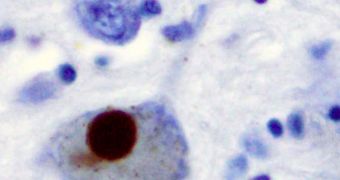A new investigation seems to show that people who are experiencing sleep disorders, such as IRBD or even sleep-walking, are at increased risk of developing dementia-spectrum disorders, such as Parkinson's.
The investigation was mostly oriented on individuals who tend to exhibit aberrant behaviors while sleeping, such as for example kicking, screaming, punching, getting out of bed, or engaging in any other type of “uncommon” activities.
It would appear that the way they act is triggered by the same chain of neurological events that leads to the development of neurodegenerative disorders such as Parkinson's disease.
The conclusions of the new study could in the near future help healthcare experts and sleep specialists in placing better diagnostics, and also in alerting people if they are at high risk of developing the disorder.
Additionally, the experts who conducted the new investigation show that brain imaging techniques can be used with a great deal of success in predicting whether patients suffering from sleeping disorders will develop the condition.
The research was mainly focused on the condition called rapid-eye-movement (REM) sleep behavior disorder (IRBD).
During REM sleep, the activity of neurons, or nerve cells in the brain, exhibits patterns that are similar to those of neurons in the wake brain. Numerous speculations about the purpose of REM sleep are currently being discussed in scientific circles.
The new investigation will be published in the upcoming October issue of the esteemed scientific journal The Lancet Neurology.
It was led by experts from a number of research institutes and universities from around the globe. The experts were led by investigator Alex Iranzo de Riquer, who is based in Spain, at the Hospital Clinic of Barcelona, MyHealthNewsDaily reports.
One of the most important things the team discovered is that people who suffer from IRBD tend to exhibit muscular activity patterns during the night.
Normally, when people are in REM sleep, their muscles are essentially paralyzed, so they cannot respond to cues provided by the brain.
Researchers now believe that the two phenomena may be linked, and so they are about to conduct new investigations into this connection.

 14 DAY TRIAL //
14 DAY TRIAL //